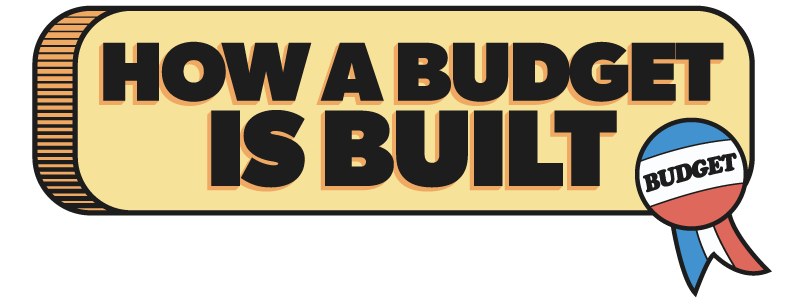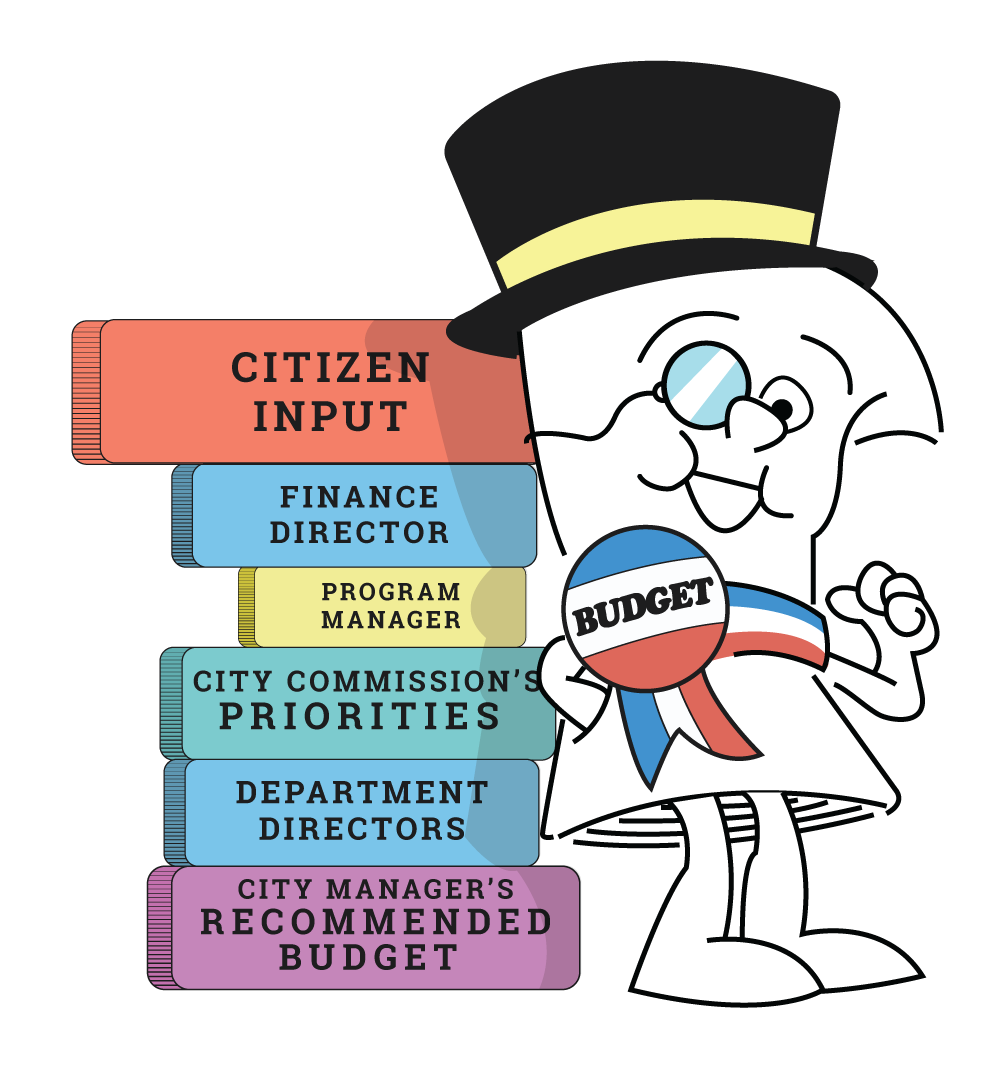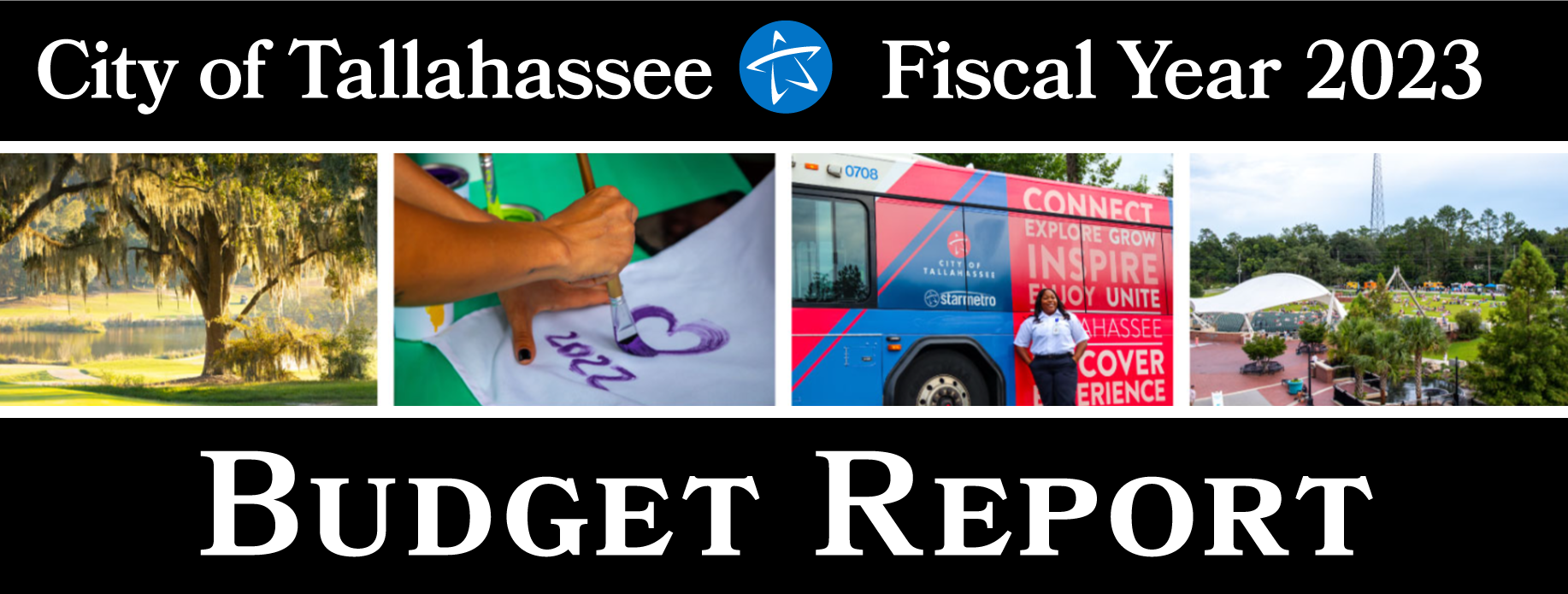
The City of Tallahassee's budget indicates the community’s civic priorities, projected revenue and costs, and plan for the future (i.e., what revenue will pay for which departmental services and for whom those services exist). Development of the annual budget is more than just number crunching; the budget reflects the City’s financial commitment to the adopted strategic plan. Its conception considers the needs and priorities of all stakeholders, from government officials and City employees to citizens and business leaders. The development, approval, and implementation of the budget are all critical steps of the budget process.
So, what is the City of Tallahassee's annual budget process?

Budget Development
To best achieve the goals outlined in the adopted five-year Strategic Plan, the budget preparation process begins by identifying budget objectives. Using the City Commission’s stated priorities for the year, the City Manager drafts a recommended budget through the budget office. The proposed budget then goes to the City Commission for discussion and approval.

Citizen Engagement
It is important that community members provide input throughout the budget planning process. Soliciting and integrating public input on the budget further strengthens trust and transparency. The City engages with citizens during budget workshops throughout the year, which can be attended in-person or watched via the City's website, social media and television channel. Additionally, the City’s financial information is always available online at Talgov.com.
Budget Approval, Adoption & Implementation
When the proposed budget goes to the City Commission, each member reviews it in detail, and the body provides direction after discussion at workshops and meetings. Final adoption of the budget occurs each September after two public budget hearings.
Budget Communication
Once the process is completed, the City published a comprehensive budget to ensure transparency. The budget can also be further explored through OpenGov, an online platform for the City’s financials.
Budgeting Timeline
First Quarter of the Fiscal Year
October
The new fiscal year starts on October 1.
November
Experts begin the new year’s Capital Budget Plan.
December
The books close for the previous year and are included on a Commission meeting agenda
Second Quarter of the Fiscal Year
January
The City Commission annual retreat acts as a collaborative meeting to establish the coming fiscal year’s focus areas for the City of Tallahassee, which helps guide the budget.
February
A first quarter update and analysis is completed and presented for the current fiscal year.
March
Specialists continue to analyze trends and prepare to formally present a draft budget for the coming fiscal year in the next quarter.
Third Quarter of the Fiscal Year
April
Preview is ready for the next year's budget assumptions, as is the current year’s second quarter update.
May
The draft budget is refined.
June
The City hosts the last budget workshop and presents a proposed budget and tentative Millage Rate, as required by State law.
Fourth Quarter of the Fiscal Year
July
Specialists continue to refine the budget in line with Commission direction and prepare the third quarter budget update.
August
TRIM notices are sent to property owners.
September
The City hosts the first and second public hearings on the budget, as required by State law. At the second hearing, the City Commission adopts the next year’s budget. The current fiscal year ends on September 30.

Learn More on OpenGov
Financial Schedules
This section contains links to the OpenGov transparency portal that the City of Tallahassee uses to share financial and budgetary information. The strength of the platform lies in the power of the viewer to see the budget from any angle. Select the links below as starting points.
Budgeting Timeline
First Quarter of the Fiscal Year
October
The new fiscal year starts on October 1.
November
Experts begin the new year’s Capital Budget Plan.
December
The books close for the previous year and are included on a Commission meeting agenda
Second Quarter of the Fiscal Year
January
The City Commission annual retreat acts as a collaborative meeting to establish the coming fiscal year’s focus areas for the City of Tallahassee, which helps guide the budget.
February
A first quarter update and analysis is completed and presented for the current fiscal year.
March
Specialists continue to analyze trends and prepare to formally present a draft budget for the coming fiscal year in the next quarter.
Third Quarter of the Fiscal Year
April
Preview is ready for the next year's budget assumptions, as is the current year’s second quarter update.
May
The draft budget is refined.
June
The City hosts the last budget workshop and presents a proposed budget and tentative Millage Rate, as required by State law.
Fourth Quarter of the Fiscal Year
July
Specialists continue to refine the budget in line with Commission direction and prepare the third quarter budget update.
August
TRIM notices are sent to property owners.
September
The City hosts the first and second public hearings on the budget, as required by State law. At the second hearing, the City Commission adopts the next year’s budget. The current fiscal year ends on September 30.

Learn More on OpenGov
Financial Schedules
This section contains links to the OpenGov transparency portal that the City of Tallahassee uses to share financial and budgetary information. The strength of the platform lies in the power of the viewer to see the budget from any angle. Select the links below as starting points.